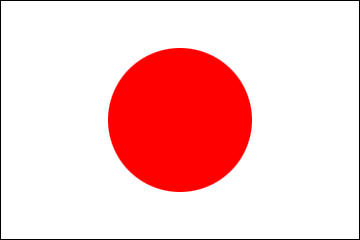Through the Eyes of the former Consul General Yamada (June, 2017 - July, 2020)
2019/1/7
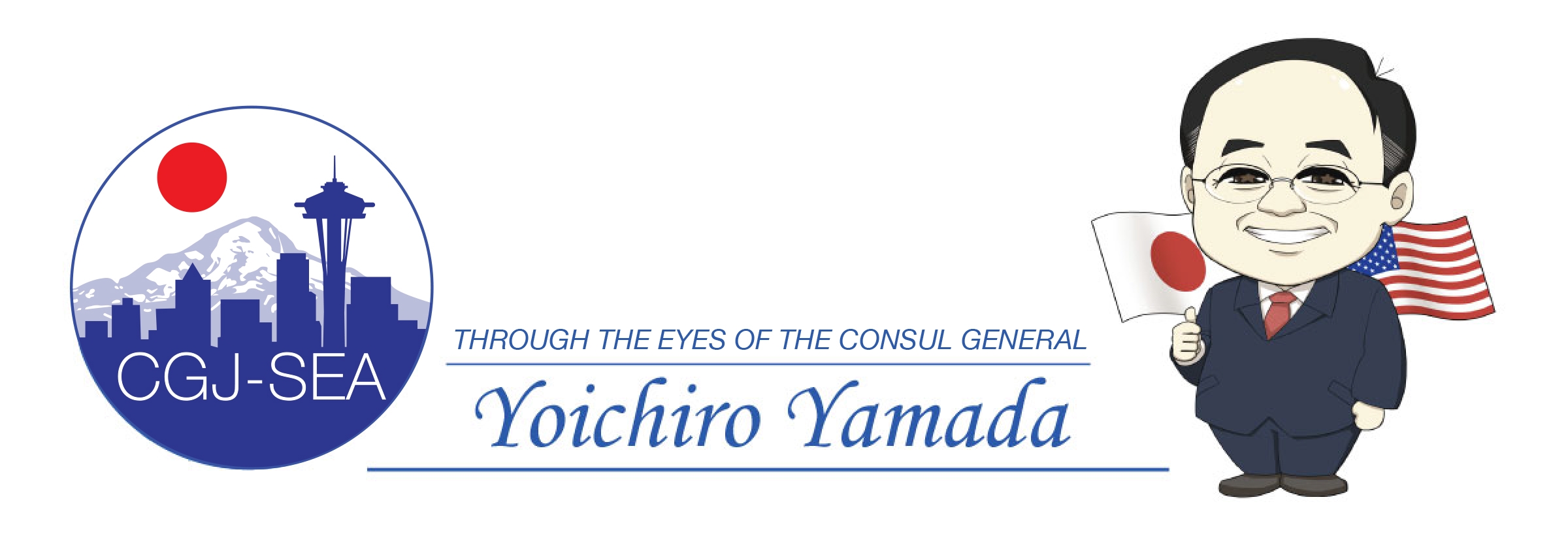
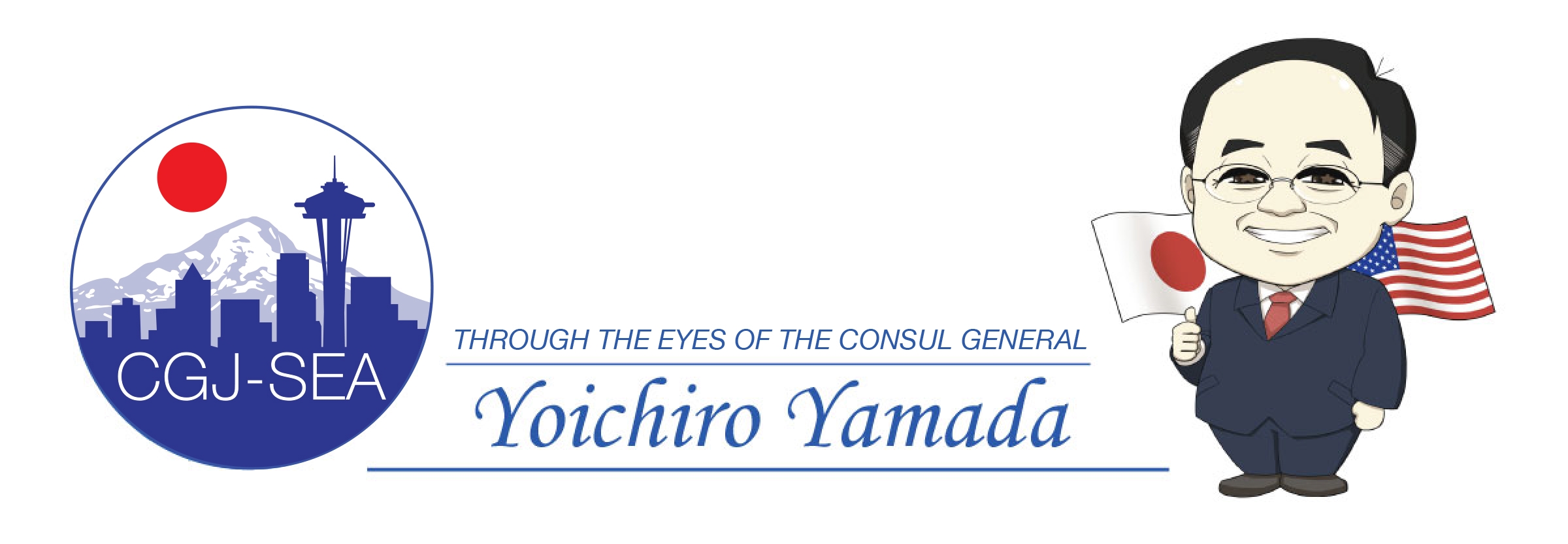
Dr. Tachi Yamada's State Award
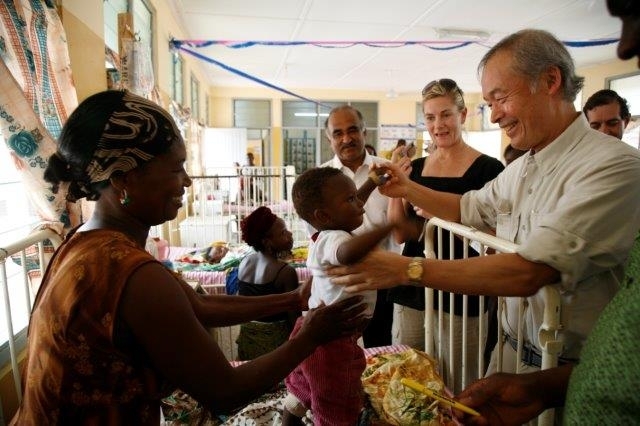
Dr. Yamada in Ghana (Photo courtesy of Dr. Yamada)
On December 6, a reception was held at my Official Residence. It was to celebrate the conferment of the state award, the Order of the Rising Sun, Gold and Silver Star, to Dr. Tadataka (worldwide, he is better known as “Tachi”) Yamada, bestowed by the Government of Japan. His achievements were so significant that he received the award at the Imperial Palace in Tokyo a month earlier directly from Prime Minister Shinzo Abe, and was then greeted by Emperor Akihito, at the imperial palace in Tokyo.On December 6, a reception was held at my Official Residence. It was to celebrate the conferment of the state award, the Order of the Rising Sun, Gold and Silver Star, to Dr. Tadataka (worldwide, he is better known as “Tachi”) Yamada, bestowed by the Government of Japan. His achievements were so significant that he received the award at the Imperial Palace in Tokyo a month earlier directly from Prime Minister Shinzo Abe, and was then greeted by Emperor Akihito, at the imperial palace in Tokyo.
 |
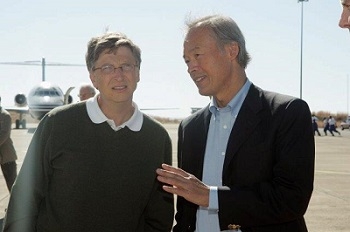 |
| (left) Bill Gates providing a congratulatory video message to Dr. Yamada; (right) Mr. Gates and Dr. Yamada in Lesotho (Photo courtesy of Dr. Yamada) | |
There were some eighty guests at the reception in Seattle, including Dr. Yamada’s family members and colleagues from the organizations where he had worked, including the University of Michigan, GlaxoSmithKline (a pharmaceutical company), the Bill and Melinda Gates Foundation (a philanthropic foundation), and Takeda (a Japanese pharmaceutical company). His work through these organizations can be characterized as contributing to the health of those who can least afford medical care. Mr. Bill Gates, at whose foundation Dr. Yamada was in charge of global health and directed the channeling of billions of dollars for people in poorer countries, sent a video message for the reception on the 6th, saying, “Congratulations. Super deserved!” Former President Bill Clinton, for whom Dr. Yamada worked as chair of the board of directors of the Clinton Health Access Initiative, sent him a congratulatory letter.
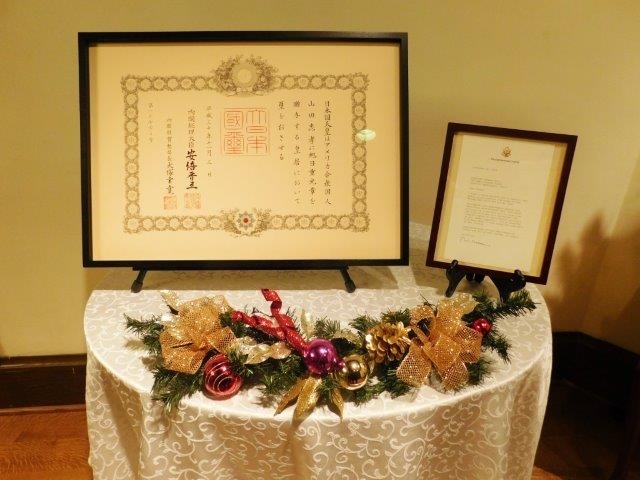
Certificate of Commendation (left) and Letter from The Hon. Bill Clinton (right)
Dr. Yamada was born in Tokyo in June 1945. The world was at the final stage of World War Two. Tokyo was in flames, bombarded by American military planes. Food and other essentials were in short supply. Dr. Yamada weighed only three pounds (1.3kg) at birth, and was thought not to survive. But, he did. In 1960, when he was 15, he moved to the United States, where he held citizenship (he was born to a Japanese American mother), in search for better education. On leaving Japan, his father told him to never forget Japan and to consider contributing to his country of birth. Dr. Yamada somehow sensed that he would not come back to Japan, but would always remember his father’s words.
In article No.2 of this column series, I mentioned Dr. Yamada’s pivotal contributions to the creation of the Hideyo Noguchi Africa Prize and the Global Health Innovative Technology Fund, a public-private mechanism to facilitate pharma companies to work on medical innovation for the people of poor countries. While at the University of Michigan, Dr. Yamada educated a number of Japanese gastroenterologists who later became leaders in the field in Japan. They are thus often referred to as the “Michigan Mafia.”
Dr. Yamada also played a critical role in adopting a global health agenda at a G8 leaders’ meeting in Toya Lake in 2008. Japan, as chair of G8, was trying to focus the attention of world leaders on global health. Representing the Bill and Melinda Gates Foundation, Dr. Yamada rolled out a convincing case for a holistic approach in addressing health problems in developing countries. His recommendations formed the core of the Japanese proposal and were adopted by leaders. The final communique of that Summit meeting would emphasize the importance of systems and an institutional framework in achieving better health worldwide, and set the tone for international efforts on global health thereafter.
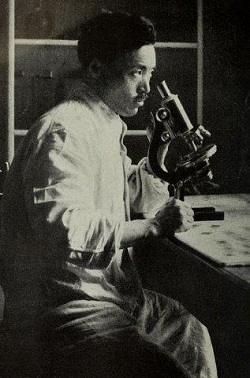
Hideyo Noguchi (Wikimedia Commons)
During his speech at the reception, Dr. Yamada mentioned the life of Hideyo Noguchi, who devoted his life to medical research for tropical diseases a century ago. Noguchi died from yellow fever while doing research of the disease in Ghana. Dr. Yamada recalled Noguchi’s life when the former gave the Meningitis-A vaccine, a new medical solution that would almost completely prevent this serious disease, to a seven-year old girl in Burkina Faso. Both Noguchi and Dr, Yamada traveled from Japan to the U.S., pursued medical studies, and found passion to work for the powerless through medicine. Both Noguchi and Dr. Yamada made a giant impact on the health of millions of people. Both received the same award (Noguchi posthumously) from the Japanese Government.
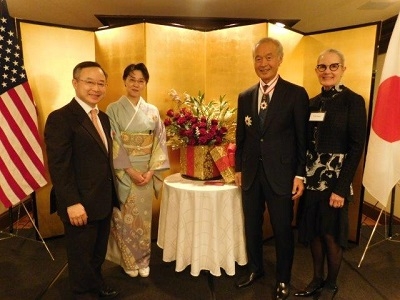
Tachi and Leslie Yamada on the right; my wife and I on the left
Once scientists set to work, they work many days on end. One of the guests noted of Dr. Yamada that without his wife, Leslie, Dr. Yamada would not have been able to devote so much time and attention to his work. Mrs. Yamada said to me that their trip to Japan to receive the state award was an unforgettable experience. Maybe it is in recognition of the spouses’ untold contribution that both the awardee and his/her spouse are invited to a greeting by the emperor. For Dr. Yamada, the state award meant that one of his important missions was accomplished: his pledge to his father to contribute to the country of his birth.
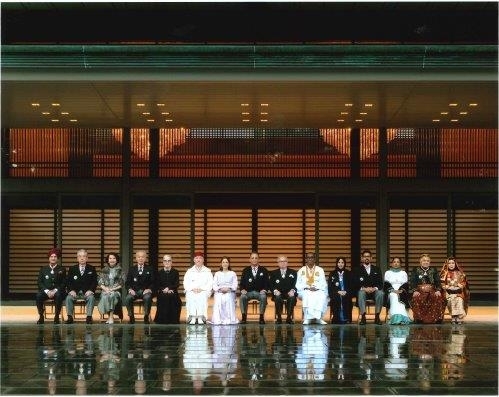
Recipients of Imperial Decoration in Japan for Commendation Ceremony
